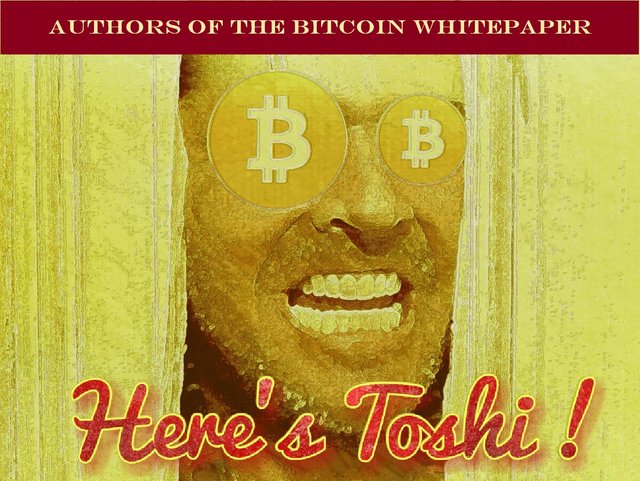
A great detective once said, "There are no such things as coincidences." He called it Rule 39 if I'm not mistaken. A logical perspective. Laced with a hint of cynicism, but an ideology based in realism. Detective Gibbs from the television series NCIS said that. He's technically not a “real” person, but who cares? It's still a great point of view, albeit from a fictional character. One of my dad's favorite characters on TV, so I must lend the guy some credibility, primarily because my father is a good man. Also, because my personal philosophy regarding coincidences happens to align with the Detective Gibbs Theory.

When it comes to who invented Bitcoin, many candidates fit the profile of pseudonymous creator, Satoshi Nakamoto, the protagonist in our cryptoverse saga. If you are at all familiar with the origin story and have tried to attach a face to the mystery man, individuals such as Hal Finney, Adam Back, Nick Szabo, or Craig Wright may be among your list of usual suspects. Even Elon Musk is considered one of the more plausible red herrings that would solve what some call, the greatest mystery of the 21st century. But is it truly a mystery?

I’m getting ahead of myself. We’ll get back to that. Let’s start with something simple. Putting aside any personal thoughts you may have on Satoshi's identity for a moment, I would like you to agree with me on this statement:
Whoever authored Bitcoin’s Whitepaper is
Satoshi Nakamoto.
Satoshi Nakamoto.

Most people would probably agree with that assumption. Considering his name is on the cover as author of the whitepaper, it would be difficult to disagree with. So then, keeping that in mind, if the authorship of that paper could be attributed to a person or entity beyond a reasonable doubt, that person or persons, would then be credited as inventing Bitcoin and blockchain protocol.
.JPG)
The Bitcoin whitepaper is one of the few pieces of evidence made available to the public that ties the creation of Bitcoin to a real-world person. Anyone with an internet connection can download, read, and analyze it at bitcoin.org. Taking that into consideration, along with the deductive reasoning above, wouldn't you think someone put a comprehensive investigation into that? Well, if someone did and figured out anything that merited mentioning, it certainly wasn't reported anywhere, so maybe no one did. But I find that hard to believe. It doesn’t take a Pulitzer Prize-winning journalist or an NSA-sponsored APT group to think outside the box and say, “Well jeez, you know something, authors, they tend to repeat themselves. I bet this guy wrote something else that has his real name on it and could be found. If only someone created a massive search index, a database of sorts, that could browse, catalog, and archive billions of documents and records and photos and words that have been uploaded to the internet, then allow us to consolidate, filter, and sort them based on relevance and keywords. Oh, and if only such a platform existed, I would hope a user-friendly GUI could be implemented somehow...”
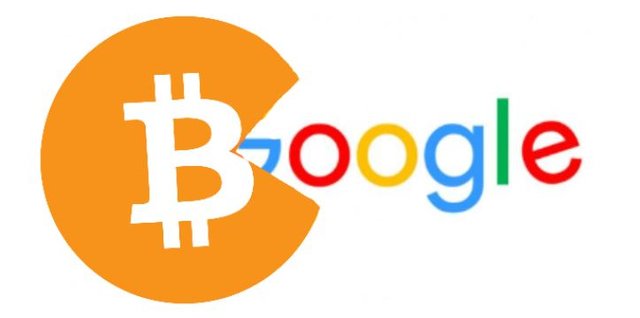
Now before you scurry off to bitcoin.org to download the whitepaper, then head over to your local architect to have the blueprints drawn up of the detective office you plan on building while attempting to solve this Scooby Snack worthy mystery (zoinks), ask yourself this: If little old me thought of that, don’t you think somebody else may have also? Like, oh I don't know, say, high-ranking government officials? Law enforcement? The intelligence community? Interested parties that represent the world banking sector? Cybercriminal syndicates? Mr. Carruthers, the crooked real estate agent wearing a swamp monster costume? Another question mark that is preceded by a noun perhaps? I wrote a version of this story a couple of years ago and as it turns out; I published my findings in haste. During some of my post-publishing research I found out that other people have thoroughly investigated the matter. While I cannot speak for the findings of others, I can speak for my own.
Based on my research and analysis of the Whitepaper I know who created Bitcoin, and it looks as though this mystery was solved long before I investigated it.
.png)
For the most part humans are predictable creatures. If you give it some thought, other than advancements in technology handed down from generation to generation which have enhanced our capabilities as a species, statistically and historically speaking, human existence is rather monotonous. As far as our behaviors and sociological habits over time, we might as well be in syndication with the number of reruns we've aired. Basis of our ecosystem: Build it up. Eat, sleep, drink, learn, sex, drugs, religion, money, government, war, plague, death. Tear it down. Repeat. Our world lacks originality. If one were to take snapshots of various points in time throughout the ages, our inventions and discoveries by means of breakthroughs in technology are the only clear variable in the equation of human life. Most things in our world are recycled in some capacity, including many great inventions. It's understandable. For an individual to brainstorm an idea that is unique would be difficult, maybe even impossible. I am certainly not saying the revisiting or rejuvenating of an old idea should be discouraged, after all some of the best thoughts are produced because of mistakes learned from, and ideas borrowed from yesteryear. A very small example. Family Guy. Never happens without the Simpsons. I think they are both hilarious and entertaining, so I am on board with hitting the refresh button on an old concept. Even our beloved Bitcoin is technically an invention that was reprocessed by predecessor research and developments. Some people might not realize, Bitcoin is not the first cryptocurrency.

In 1983, David Chaum, a programmer, and cryptographer came up with a blueprint for an anonymous cryptographic electronic money system called "e-cash", and in the 1990s saw his idea come to fruition with Digicash. This was the first form of cryptographic electronic payments, requiring software in order to withdraw notes from a bank. His system was untraceable by the issuing bank, by the government, or by any other third party. After Chaum, in the late 1990s, a programmer named Wei Dai published a paper that described what he characterized as an anonymous distributed electronic cash system known as “b-money”. Another honorable mention is Nick Szabo’s Bit Gold, which came with its own proof-of-work system that bears many similarities to Bitcoin’s mining process. Last to mention, but perhaps the most promising for so-called “mass adoption”, was Hashcash, one of the more popular and more widely used "pre-Bitcoin" virtual currencies. Hashcash also had real-world applications in computing (as many altcoins do today) and was not exclusively a secured, decentralized value storage and transfer system. Its functions include helping to prevent DDOS attacks and minimizing spam content. It is the proof-of-work system implemented by Adam Back’s Hashcash that would be the basis of Bitcoin’s foundation, the utilization of a distributed timestamp server on a peer-to-peer level.
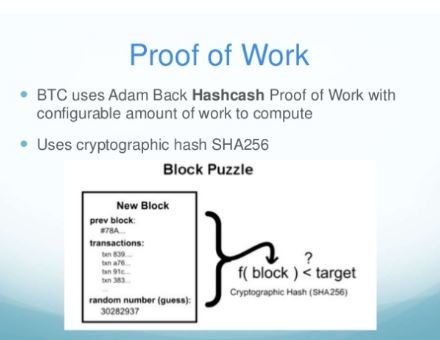
Evolutionary upcycling is ever apparent in our world, so why should the cryptoverse be any exception? Our species does have a habit of “predicting” the future and mimicking the past. For better and for worse. New ideas and inventions of today’s modern world do not deliver the same jaw-dropping reactions as many of their predecessors did once upon a time. Let us say, there was a science fiction story written a hundred years ago, and within its storyline, some object or event considered to be fictional when it was written, came to fruition today. It would not be considered far-fetched, nor looked upon as a premonition of sorts in the present time. And, it would also not come to much surprise if that very object turned out to be not its own standalone, original idea.
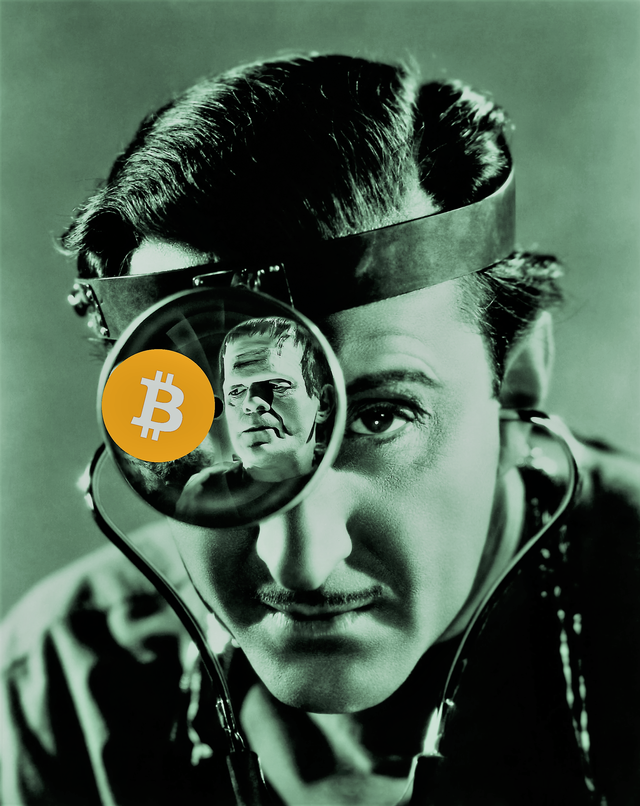.png)
Our inspiration and experiences are derived from a menagerie of sources. In that hypothetical story, the characters, the places and the ideas within, are all biproducts of the author’s knowledge and creativity. It is the presentation and methodologies utilized that make it distinctive. And, when those distinctions are compared with other bodies of work, it makes one writer distinguishable from another. What becomes almost as important as what is written, is how it is written. Oftentimes this is referred to as the style. It is a rhetorical fingerprint, and every author of any written material that has substance, leaves theirs behind. It becomes part of the composition’s identity.

Whether our author chooses to be anonymous, pseudonymous, ghostwritten or publish their name in bold letters on the front cover beneath a signed and notarized photograph of themselves holding their passport (KYC), they are forever bound to those words like a fingerprint. And, to further drive home the already persistent theme of repetition, an author is also bound to repeat themselves in some way throughout a collection of their own work. Sometimes it is subtle and oftentimes unintentional, but if an author’s work is carefully examined, it will display an overall style that will differentiate them from the majority, and that style can be utilized to pinpoint their identity. All it would take to identify an unknown writer with a high degree of probability, would be comparing the piece in question with samples of other works that are acknowledged by, or from a position of legality, have been linked to a particular individual as the author. A parallel could be drawn in most instances, if there were a database large enough to compare from. Like maybe, the internet… as archived by the data cookie monster Google. Many times, it is simply the verbiage or usage of colloquialisms that betrays any attempt at anonymity and ultimately breaks through any mask the author had hoped to hide behind.

AND NOW... THE WORD OF THE DAY.
The word of the day is brought to you in part by the National Security Agency.
Today's word is: Stylometry.
Stylometry is the statistical analysis of variations from one piece of writing to another, often used to attribute authorship to disputed or anonymously written documents. It is also a recognized forensic investigative technique utilized by the National Security Agency, along with many other local, state, federal and international law enforcement agencies.

Rewind to the year 2015 when news in the Bitcoin world was abuzz with United States law enforcement agencies seeking out the identity of Satoshi Nakamoto. It appeared as if that went on for a year or two, then, abruptly stopped. Did anyone find that strange? Because I never noticed any news that questioned why it stopped. There was no Dickens-like newsboy character in Times Square shouting, "EXTRA! EXTRA! Read all about it! The FBI, CIA and NSA are no longer looking for Satoshi!!" Here is the thing about that: The various agencies, private contractors, civilians, oligarchs and other goblin-faced entities that form the protruding, perspiration saturated, capitalist driven, steroid-fueled arms of the United States government's intelligence community, don't just abruptly stop looking for someone. Especially someone, for all intents and purposes, seen as a potential threat to the financial sovereignty of the almighty American dollar.
.png)
To me it is obvious that our Satoshi was found. He was either seen as a non-threat, recruited, or, is still actively under investigation and under surveillance. Whatever scenario is the reality, I would venture to guess whomever (most likely our friends at the NSA) found Satoshi, he is now closely monitored. So based on the rumblings, if you believe such rumors (that I just started), it appears that Satoshi has already been discovered by our old friends at the NSA years ago. But why bury it? Either by way of suppression or just not giving two proverbial shits, the liberal and conservative media have collectively either ignored this or deliberately not publicized anything on Satoshi, for whatever reason, since the fiasco with Dorian Nakamoto (the "face" of Satoshi). Any half-witted journalist could perform the same research as I and figured out with a strong degree of certainty who Satoshi is in a few hours. I will admit the evidence I present is circumstantial, however it is most certainly enough for the court of public opinion to weigh in on for a verdict.
As stated earlier, I have written this story before. I published a brief article on Steemit a couple of years ago. Outlining my findings, naming names and couldn’t wait to see what the feedback would be. It caught absolutely no heat, apart from a few thumbs up and bromides in the commentary. I found that mind boggling at the time. An article identifying who I thought to be Satoshi Nakamoto, a logical and factual based theory, posted on a forum designed on the very technology this mysterious person created, and there was no response. No criticism, no reaction. I thought maybe I missed something. Maybe the wrong photos, or title, or I did not use the appropriate hashtags. I was new to Steemit then, and as a new user, to be honest, it was quite sobering for me. I would have even appreciated someone who ripped it apart and discredited the theory. I wondered where I went wrong, and after a couple years of membership, I finally realized what happened. The Steem, and now Hive, blockchains along with all the dapps and forums connected and associated with them, are basically a hotbed for know-it-alls, pretentious middle aged adolescents, attention-seeking weirdos and psychopaths, who all love the sound of their own voice. Which is probably why I feel right at home in those places. That coupled with a possible hashtag misappropriation made my story appear as white noise on the forum to an indoctrinated n00b like myself.
The article did catch some heat on Publish0x. However, (if the theme of replicating predecessor actions is not already laughably apparent), I did not have an account on Publish0x at the time, did not even know the website existed. Someone straight up, word-for-word, copied, pasted and stole my entire article from Steemit, and posted it as their own on Publish0x. I only found it because I was doing some follow-up research after publishing and came across the link for it. That goes to show you how many people are talking about this. My original post and the virtual thief’s post were among the first results on Google. Moderators at Publish0x agreed with my claim of plagiarism, as I provided them with the original link on Steemit, verifiable by the blockchain (thanks Satoshi).
The stolen article was subsequently removed, and I am assuming, the account of the word burglar along with it. I do not know how someone can do that. Look, I am no angel. However, there is even supposed to be honor among thieves and today, you just do not see it anymore. I could have cared less if the person at least paraphrased me, for God’s sake there are bots online that will do it for you for free! It is the complete lack of creativity and straight up theft for what? Personal gain. Earning crypto off my words. The douchebag puts it on Publish0x and surprise, he makes more money of it than I did with my own post on Steemit. At least my writing got out to the public. There were a couple comments praising that lying douchebag’s research…ahh. Just, zero original thought whatsoever. It’s one thing if you have some terrible topic of a term paper due and you are last-minute plagiarizing by copy-pasting some article and paraphrasing with a word spin bot. I mean, there is at least work involved when you do that and it's to coast through just one assignment. And oif course at the very least credits for reference are given in the bibliography. But, this particularly pathetic larcenist of my precious wordsmithing, did not even have the originality to do that. Just took it word for word like it was his own, even my grammatical errors. What a Dick with a capital D. I never republished the article because I felt that now, it was tainted…
I mean I could taste the stench, being used like a hooker, all over it. There was a metaphorical wetness to the article now. As if it had recently been on the floor of a gas station bathroom, in a wet spot, and you have no clue what caused the wet spot... But there are several culprits… And, the cloudiness of the water throughout metaphorical puddle suggests that its source was very unclean... By no means was it even the semi-clean sink water from the tap...
{shutter}{shutter}

For whatever reason, these findings have not been picked up by the mainstream press, in the most likely scenario, most people do not care. Speaking honestly, most individuals I come across in the world could not even tell you what the hell cryptocurrency is, let alone that Bitcoin was invented by a pseudonymous character known as Satoshi Nakamoto. The information I came across a couple of years ago appears to be nothing new when you really break down and start truly researching it from a completely logical standpoint. During my post-publishing research, and now, overall interest in the subject, I came across a small-time blogger who had deduced the same conclusion, in almost the exact same manner. Admittedly, feelings of defeat overwhelmed me. Even more so upon realizing the article was dated about 2 years prior to my own.
Lately, I have noticed what must be a new group of… let’s call them people… asking the question, "Who is Satoshi Nakamoto?", and even others claiming to be him. The true catalyst that fueled this writing frenzy and my renewed interest in covering and sharing this topic more comprehensively, was yet another Craig Wright story popping up in my Google feed this afternoon. Most individuals who have an opinion on the matter, tend to land on the opposing side of Craig Wright's claim that he is Satoshi Nakamoto, inventor of Bitcoin. Whichever side you might land on in that argument, you have got to give the man credit. Most individuals in his position would have likely given up the ghost after facing the barrage of booing and hissing from the heavy hitters within the cryptoverse. Craig Wright has turned the other cheek. He is still going strong. A judge even called him a liar. It looks like he will be defiant until the end. If nothing else, you can say at least the man has principles somewhere and stays true to his version of the truth. Unwavering to the many adversities thrown upon him, still offering his special blend of Kool-Aid to any potential followers who will listen. Based on the facts published regarding his claims, I do believe it is possible that Craig Wright was one of the early adopters and possible developers of Bitcoin. However, attempting to crown himself as THE Satoshi Nakamoto, in this man's opinion, is a farcical claim and a massive overstep from any actual significance or role he may have truly played in the origins of Bitcoin. Just an opinion. Don't sue me Craig.
Speaking of lawsuits let me throw this out here: I am a significantly flawed individual. Just because I have an opinion or a theory on who Satoshi Nakamoto is, does not mean I am correct. I am often classified as an over-intelligent, overzealous, crude, ranting, and raving lunatic by my peers, colleagues, and family. While that may be true in some instances, my deductions regarding the identity of our pseudonymously monikered madman-in-the-middle scientist, are backed up by logic, sound reasoning, and indisputable facts. The findings I have provided below do not contain any sort of sociopathic manifesto, nor outlandish claims laced with Illuminati references. Those things, as awesome as they can be, are (unfortunately) not presented to you below. These are the facts. Laid before you, consolidated and organized (and maybe a little story-driven, possibly embellished) for your reading pleasure. All I ask of you, the reader, is that you absorb the information and arrive at your own conclusion. And for God’s sake don’t feel like you can’t critique or tell me I’m wrong or heaven forbid, you agree with me.
So, without further grandstanding or ado, here is my recollection of the evening that I identified the authors of the whitepaper, the individuals behind the pseudonym Satoshi Nakamoto, and who I believe to be the inventors of Bitcoin and blockchain protocol---
ON WITH THE FREAKSHOW...
.jpg)
One night in the spring of 2016, I read an article about Satoshi Nakamoto, and how the FBI was looking for him. I had known about Bitcoin since 2012, but I never knew much about its origin story. Until the night I read that article, I had no idea the sheer mystery behind Satoshi Nakamoto. After I read some of the details, it piqued my interest. So, like an OCD addled dog digging a hole to bury his precious bone, I became immersed in research and analysis, with my goal being to solve the Bitcoin mystery. As I dove headfirst into the gunfire of Bitcoin’s beginnings, I could not believe the imagination and originality behind a few theories being tossed around as to who was responsible for the cryptocurrency’s creation. Here are a couple examples:
One stated that Satoshi Nakamoto was not a man but rather four corporations, all manufacturers of electronics, all titans of their industry, all located in Asia. And their company names, collectively made-up the man's name.
SAmsung, TOSHIba, NAKAmichi, MOTOrola
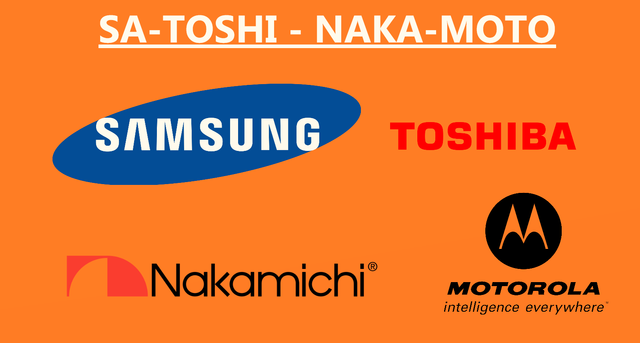
Clever eh? I thought it had a nice touch. However, the only supporting evidence to this theory is the name itself, and while it would wrap this up neatly, and maybe make sense on some level, I don't buy it.
Too many people would be involved. Somebody would have more than likely leaked a document or research that would have pointed to at least one of these companies as the culprit long ago. Not to mention, these companies represent what some might call the epitome of corporate greed, therefore I find it difficult to believe they would release Bitcoin as free and open-source and non-trademarked (by them) for users, users who would normally be called customers. No Samsung logo anywhere? It would also be entirely too much of a scandal for corporate giants to walk away from and not be held accountable by someone.

Many point to the NSA as the shadowy figure that created Bitcoin, and the NSA did create a part of Bitcoin’s foundation. SHA-256 is a secure hashing algorithm. It is used in the Bitcoin Network as the proof of work algorithm for mining and for the creation of wallet addresses. SHA-256 was first published in 2001 by our good friends at the United States National Security Agency. Interesting side note, which only adds more fuel to the intelligence agency conspiracy fire: Guess who had the biggest Bitcoin wallet in 2013 (not counting Satoshi): The FBI. After confiscating coins from Silk Road, the Federal Bureau of Investigation had the biggest Bitcoin wallet, which of course was all sold at public auction, right? Yep. Nice and legal…
And, if all that is not enough to make you put your tin foil thinking cap on, how about this: Satoshi Nakamoto, the true meaning behind the name. Satoshi is a first name, typically given to boys. Its meaning is “quick-witted and wise”. Nakamoto is a Japanese surname which means Central Origin or “one who lives in the middle" because of the geographic area in Japan that surname originates from.
So, to conclude, Nakamoto means Central. Satoshi means Intelligence.
Maybe Satoshi has a middle name that means Agency. While we are on the topic of men in cloaks who roam the night, sucking up the life forces of lady liberty while we all sleep, here is a little-known fact:
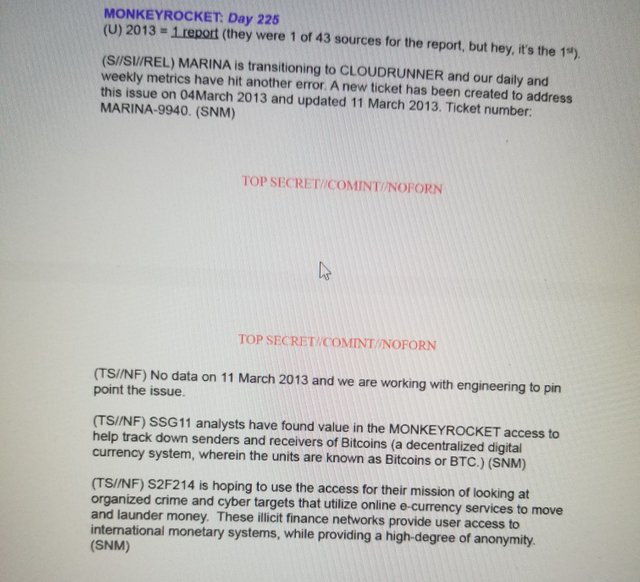
Based on leaked Snowden documents from 2013, the NSA verifies they have devised a method of tracking Bitcoin users. The rhetoric within those documents, the analysts are at least acting as if they have only had brief interactions with Bitcoin. One would think the NSA devised a tracking method if they invented it. However, the NSA is a real problem solver when it comes to making what would seem impossible, possible.
For anyone interested in how Bitcoin users are surveilled: Tracking is performed by means of an internet surveillance program under the code name OAKSTAR. Covert corporate partnerships enabled the NSA to monitor communications (i.e. packet analyze, data capture, etc.) directly from high-speed connections that form the internet undergird. MONKEYROCKET, which apparently is a repurposed VPN of sorts, is a subprogram of OAKSTAR. This was the key piece of software that enabled the identification of Bitcoin users. Instead of hiding user data, MONKEYROCKET taps network equipment directly to obtain data.
So, the verdict on the NSA being the culprits behind the creation of Bitcoin? This is another theory I believe to be false. The United States intelligence community did not invent Bitcoin. Realistically speaking, there is entirely too much thought, creativity and individualism behind the development of Bitcoin for it to be created by a government or even an outside agency or contractor working with the government. Sticking with the theme of repetition, I will use one of my own quotes from another story, “the government prints their own money, but they do not under any circumstances hire idea-men.”

A great parallel to the open-source, come one come all and use the “free” money transferal service philosophy that is behind Bitcoin protocol, is this: Have you ever found an app for your mobile phone, downloaded and used it, then thought to yourself, that is the best app I've ever used and the icing on the cake, there were no ads, no in-app purchases, just a free, fully functional app that performed exactly as it should have with no interference. It was designed and released by the developer for the purpose of providing it to users completely functional, the way it was meant to be used without any hindrance so users would be completely satisfied by their experience. It also becomes a means for the developer to showcase their skills to the public. No sales pitch every 30 seconds from an ad. No annoyingly downgraded experience if you did not make purchases within the software to unlock its full functionality. To quote Linus Torvalds, creator and principal developer of Linux, "software is like sex, it is better when it is free."

Before I even started my research, I believed that Bitcoin was created by a person or group of people who were truly invested in Bitcoin's code and overall ideology. Also, as seen in the hidden message of the Genesis block, it was like a digital "screw you" to the world's banks. The proposed theories regarding the identity of Satoshi had a made for TV movie in the works written all over them. Unfortunately, my research would end up proving to me that the identity of Satoshi was no more interesting than the identity of the man who created the credit card, and without using Google, who was that? My point exactly. What it came down to was this: Who cares who created Bitcoin.

After thoroughly researching the topic, I believe if Satoshi did not come up with the idea for blockchain, someone else would have. Whether it would have been released as free and open source is another matter entirely. I know this much to be true, blockchain technology would have never come to fruition without the usage of predecessor research, along with advancements in technology that allowed that research and development to continue where it could not be in previous years. By no means am I diminishing the pure genius behind Satoshi Nakamoto and Bitcoin. I believe Bitcoin could very well be one of the greatest inventions of our time, but unfortunately also way ahead of its time. Hopefully, our species can catch up to the idea.
Satoshi was very smart in remaining anonymous to the better portion of the world. Sometimes, the world needs a mystery. It is better not to know, and sometimes, we are not allowed to know. However, unfortunately for Satoshi, just like the very Bitcoin he created, our world is decentralized for some of us and for all of us, our data is smeared across the internet, for the entire world to see and analyze. There are people who will stop at nothing to overturn every rock and discover the truth. And, here is where I run into a bit of an ethical dilemma. As I stated earlier, who I believe Satoshi Nakamoto has been identified by others before me, and if you look close enough, you can find it. There are a handful of other small articles that predate my original, and a comment or two in Reddit, that mention the specific names that I have and the one piece of research that points the finger at our culprits. So, I do not feel too badly about name-dropping. What I do feel is like I am turning myself into a hypocrite. I can sit here and write this article anonymously because I do not want my name out there, yet I am going to turn around and reveal Satoshi’s real-world identity? Truth be told, I had trepidation about publishing this information when I wrote my original piece. But as stated earlier, I am a bit of a psycho, so I can quickly shake those feelings, like guilt and morality, off and move on down the road. Seriously though, I am constantly performing two-faced activities in my private life. Personally speaking, losing like zero sleep from this.
ON WITH THE REVEAL DOUCHEBAG. YOU LOVE HEARING YOURSELF TALK DON’T YOU?!?
Based on thorough research and analysis, Satoshi Nakamoto is one, two or all of the following people:
Neal King, Vladimir Oksman, and Charles Bry.
I will give you a moment to take those names in.
I know, shocking right?
Yeah...
I have no clue who those people are either.
Didn't that just completely deflate your sails? Who the hell are those people? Not one person from the usual suspect list? No wild cards even, like CZ from Binance maybe? And I was almost hoping Crazy Old Craig Wright was not the liar we all made him out to be. But I’m sure he is. And so, here we are. So anyway… what hell is up with those people? Have you ever heard one of those names come up as potential Satoshi’s in all the articles you have read about the topic? I mean my God; The one dude is from Jersey. I LIVE IN JERSEY! To my utter dismay, as it turns out, the answer to this mystery is neither sexy for the media nor sexy for the bedroom. Not sexy at all. As a matter of fact, I am going to go out on a limb here and say that no matter who I named… it would not be sexy.
Not sure why I keep saying that. Sexy… Probably because my girlfriend just broke up with me and my inner monologue felt the need to take it out on this piece of digital paper. Yep. I am really going to leave this paragraph here. Now see, an editor at a legitimate publication, they would remove this because it would be classified as, what is known in the publishing industry as, “off-topic” and “psychotic”. I call it removing the realism. Removing authenticity. That is how you know this was written by a loner in his Unabomber-like cabin in the woods and not some fancy author from the New York Times, sitting in an antique armchair eating soda biscuits and drinking Chai Tea. The last thing I ate were stale Oreos and ramen noodles.
The factual basis for those candidates is as follows:
Using our NSA friends’ method of finding authors of unknown documents, I decided to use stylometry on the whitepaper and compared it with other documents that could be found through Google. I read the white paper front to back, trying to find a word or other colloquialism that I could consider as a unique search identifier. After some unsuccessful tinkering with a few word choices, I noticed an instance of the phrase “computationally impractical”, it jumped out because it was written in both the introduction and the conclusion. I had never heard anyone describe things in such a manner. I majored in computer science in college once upon a time, and while that by no means makes me qualified to speak about blockchain technology, that particular phrase jumped out at me because I had never heard those words uttered in a classroom, read them in a book or could even imagine myself using them. The word impractical seemed as if it did not belong, I would have chosen the word illogical or improbable. As it turns out, “impractical”, besides the typical meaning, is a colloquialism within the finance and banking world which means “incapable of efficiency”.
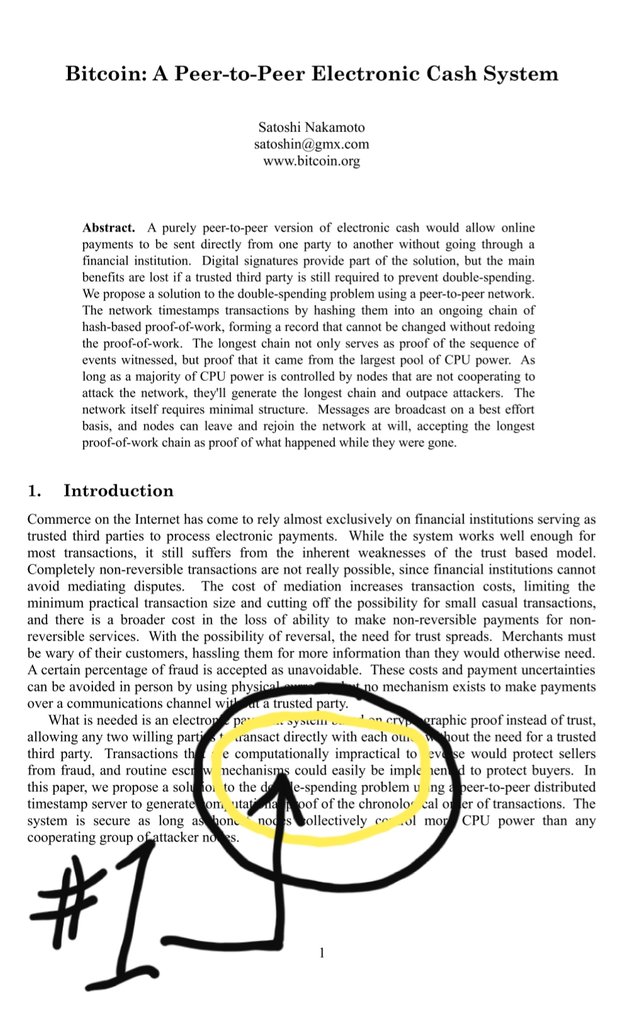
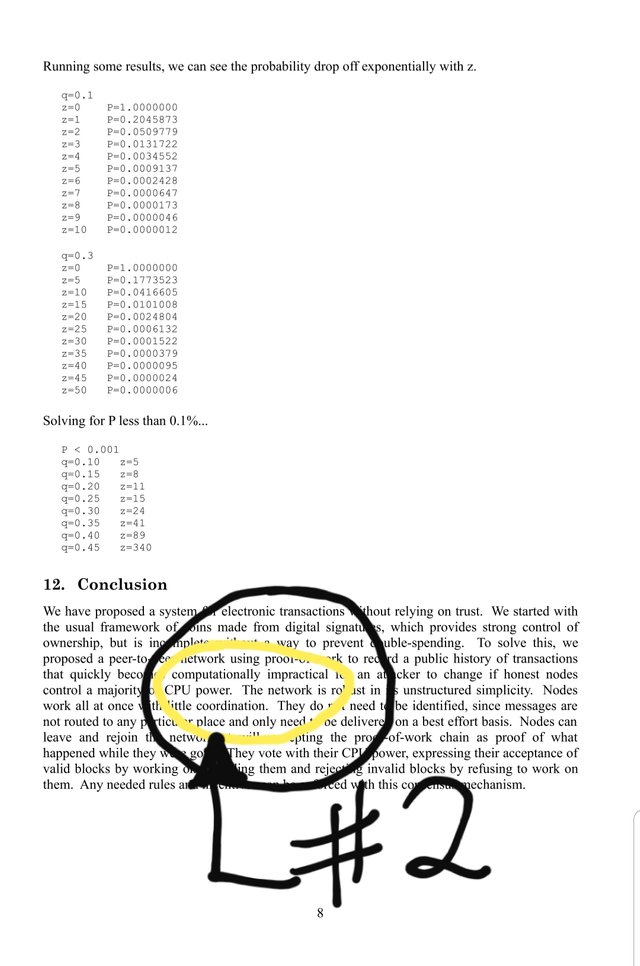
Nevertheless, those two words were odd enough for me to immediately take to Google. Here is the exact search I performed that brought me to the linking piece of evidence:
'"computationally impractical"+invention+patent+encryption
I included the words invention and patent because in one of my more general searches, the result set contained links to patents for encryption protocols in banking. With this new search, every link of the results that Google provided pertained to Bitcoin, except one:
###Patent US20100042841A1 – Updating and Distributing Encryption Keys.
https://patentimages.storage.googleapis.com/25/5e/71/0afa42f536496a/US20100042841A1.pdf
Forgetting even the similar phrase of “computationally impractical” for one minute, if you went as far as to read that patent, look at this figure:
That certainly looks like the basic process and technical details involved with generating a new wallet address. A new pair of keys is generated, utilized and stored - aka public and private. Use the utilized key for communication between nodes - aka - use public wallet address - for communicating - aka - transacting. I do understand that this is a bit generalized and it could be argued that the process above could be a basic descriptor for any public-key based cryptographic process. Just a coincidence.
You know another coincidence?
The word coin is in coincidence.
Perhaps this will wet your whistle:
- The patent cited above with the same phraseology as the Bitcoin Whitepaper was filed on August 15, 2008.
- The bitcoin.org domain name was registered on August 18, 2008.
-- What are the odds of the Bitcoin.org domain name being registered just 3 days after a patent like that one is filed? - A link to the Bitcoin whitepaper was provided by Satoshi on October 31, 2008.
- The first block was mined by Satoshi on January 3, 2009.
- The names on the patent matching the Bitcoin Whitepaper: Charles Bry, Neil King, Vladimir Oksman.

The Panama based WhoIsGuard is a nice touch though. Very smart, I have to say these guys Thought of everything. No extradition with any country in Panama, therefore no government can subpoena that company for the identity of the individual who registered it.
Also, there is another patent these three are recorded as the inventors of.
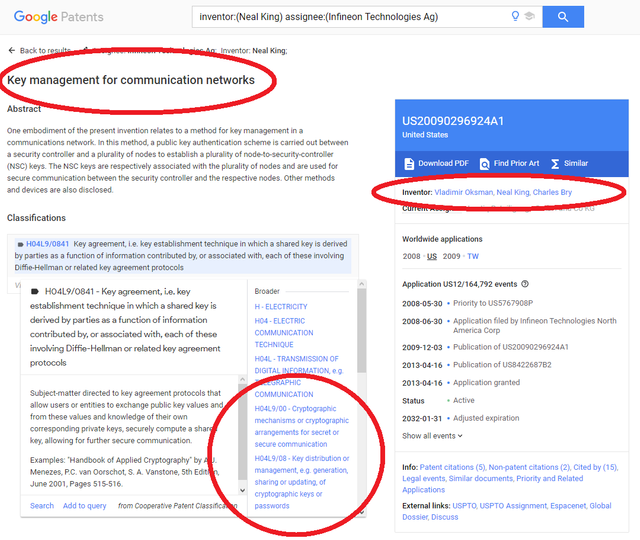
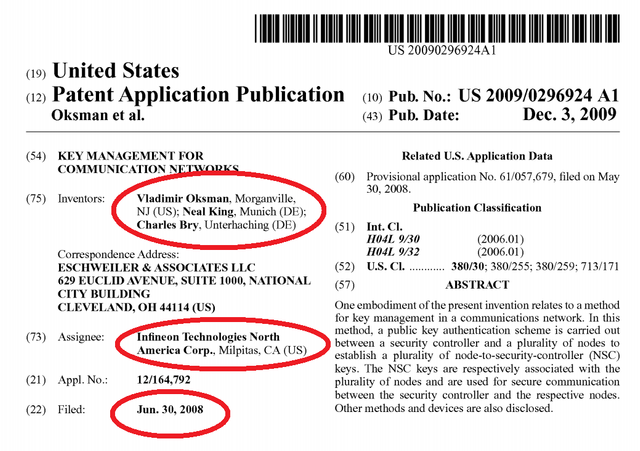
That patent was owned by a company, Lantiq Deutschland. Lantiq, defunct since 2015, was a Germany-based fabless semiconductor company. In July 2009, approximately 1,000 people from Infineon Technologies formed Lantiq. The company was purchased in 2015 by Intel $345M. The law firm that helped obtain the patent, Slater & Matsil, has attorneys with backgrounds in programming, telecommunications, application-specific integrated circuitry (ASIC) and encryption. As far as our three inventors’ backgrounds, here's what I found:
Vladimir Oksman
LinkedIn: https://www.linkedin.com/in/voksman/
Skills:
- Managing R&D teams, working in distributing environment
- Product requirements analysis, feature design proposals, proof of concept, work estimation, design
documentation, task planning, working with 3d party companies - Agile, XP, Waterfall, Six Sigma
- Android, Java, Kotlin, SDK, NDK, iOS, Objective-C
- Wireless, Embedded, Control Systems, Medical, Telecom, Networking
- Windows CE/Mobile, Object Oriented design/development, C++, TCP/IP, Sockets, Multithreading, IPC
- Embedded development, Real-time, kernel, Device drivers
Jobs:
Present –
- Master Software Engineer for Capital One
Previous –
- VP/Mobile Developer for Goldman Sachs 2013 - 2020
- Software Engineering Manager for Samsung 2009 – 2013
- Software Engineer for Creston Electronics 2008 - 2009
- Software Team Leader for Motorola 2006 – 2008
Neal King
LinkedIn: https://www.linkedin.com/in/neal-j-king-07348b4/
His most recent job descriptions:
- Systems Engineering and Systems Architecture for Telecommunications and Home Networking.
- Particular focus on network security framework and protocols.
- "As a consultant, I represented Maxim Integrated Products' interests during the definition of the G3-PLC interoperability specification for smart-grid networking communication. The G3-PLC Alliance is an industry consortium for smart-grid applications that includes utilities, automotive, equipment and semiconductor vendors. Analysis and roadmap planning for security techniques & protocols for xDSL and home-networking systems; calculation of communications capacity gained by adding a low-frequency band; assessment of external technology proposals. - Organized Infineon’s participation in technical standards for broadband modems (xDSL modems): threat assessment, resource assignments, coordination and editorial control. Committees: ITU-T Q.4/SG15, NIPPNAI, DSL Forum; Secretary of NIPP-NAI for several years. - Patents issued on emergency phone call feature; multi-level network security; and optimal window-sizing for contention access in home-networking systems. - Development of web-based information systems and tools to make technical-standards information available corporation-wide. - Worked to achieve key agreements in the technical-standards process favorable to our position in the broadband modem market by either compromising with competitors and potential customers or outmaneuvering them. - Wrote User Manual for configurable analog front-end for analog modems."
What is odd, if you search Neal J. King on Facebook, you get several results, but not this guy. I found his page by other means though, here: https://www.facebook.com/neal.j.king. Many of the posts on his page are reminiscent of the zealot like attitude towards the world's financial leaders and politicians that our Satoshi Nakamoto possesses.
Finally, there's Charles Bry. This guy is an absolute ghost on the internet after the year 2013. The only definitive instances I can find of this man are in patents archives, showing his various contributions to networking, nodes and security: http://www.patentsencyclopedia.com/inventor/charles-bry-unterhaching-de-1/.
So, do we have our answer? In our world it appears associating these 3 with the pseudonymous Satoshi Nakamoto would be considered circumstantial evidence at best. But if I’m Detective Gibbs, it’s enough to bring them up on charges. In my mind mystery is solved. The overwhelming number of coincidences is convincing enough to me that either one, two or all three of these men had a hand in creating Bitcoin and Blockchain protocol. There isn't much left to say on the matter, except, if these men are in fact Satoshi Nakamoto, thank you.
Will Bitcoin continue down its path? Will it eventually eliminate the need for cash and the financial worlds’ greedy, corporate-owned man-in-the-middle? Many people on social media talk about "mass adoption" and what it would take for Bitcoin to be at that level. My grandmother, God rest her soul, knew of Bitcoin, my mother knows of Bitcoin, my ten-year-old nephew mines dogecoin in his spare time. Many governments now consider Bitcoin and other cryptocurrencies to be legal property as if they are real estate or other securities. Some local governments already consider it to be legal tender, and you can even pay your taxes with it in some places. Mass adoption is here. It is mass acceptance and awareness that must now be promoted in order to add further stability, sustainability and credibility to Bitcoin and its philosophy. Some people will not believe mass adoption has come to fruition until "HODL" ends up a recognized word in Merriam-Webster's dictionary. Bitcoin is already a recognized word in the dictionary. The problem is people are not well informed enough about cryptocurrency and most are not willing to take the leap. That is partially because there is no spokesperson for Bitcoin. There is no face to Bitcoin. I am certainly not insinuating these alleged Satoshi’s should attempt to take that on, or anyone else should for that matter.
For instance, forgetting who invented it, when I imagine a “spokesperson” for Bitcoin, the first person that comes to mind is CZ from Binance. That is simply because he is the only person I have ever seen go on the record about Bitcoin and he lives in a financial gray zone. An unregulated, “shadow-banking” world , and on top of it, building a successful billion dollar empire out of it. Binance proves time and time again that they are the BEST exchange on the market, yet they act as a remote company that has proven it can be TRUSTED 100% whether you hold $1 or $1,000,000 with them.
A flock of sheep needs a shepherd. Most will not dive in and blindly trust something they do not understand like many of us have. That is unfortunate. But for those humans I do not lump into the “sheep” category, that still have zero interest in cryptocurrency, maybe think about this angle why they will not ever have an interest in it. Part of Bitcoin’s biggest draw is also its biggest flaw, and that is its transparency. Not everyone can operate anonymously or even pseudonymously. And, look at it this way: Could you imagine if Bank of America had a publicly viewable transaction ledger that anyone with an internet connection could access online? If someone were able to associate another simply to their account number, now, every financial transaction they ever made, along with potentially exactly who it was made to or received from, is a matter of public record for anyone to see. TMZ would open a blockchain division.
Bitcoin is a catalyst to the financial revolution that many have sought out. But I do not think our species acceptance of it is going to ever be truly fulfilled, at least to the degree the self-righteous crypto purists are looking to achieve. Simply put, there are not enough humans interested in the revolution. I hope one day I am proven wrong.
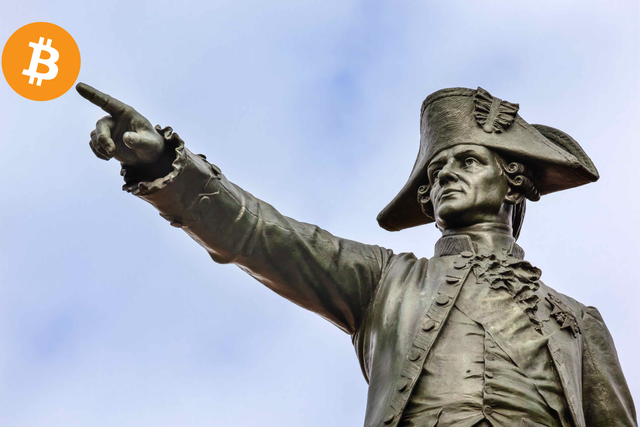

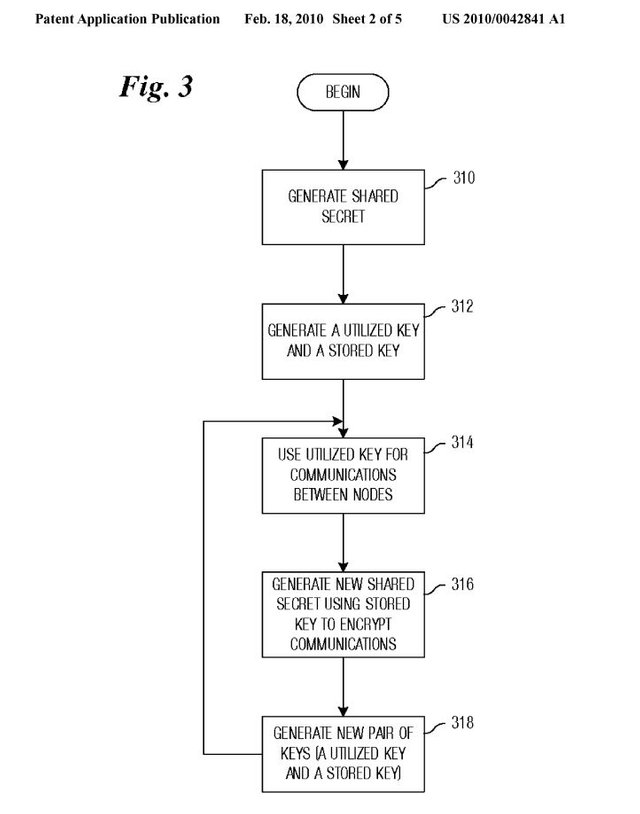
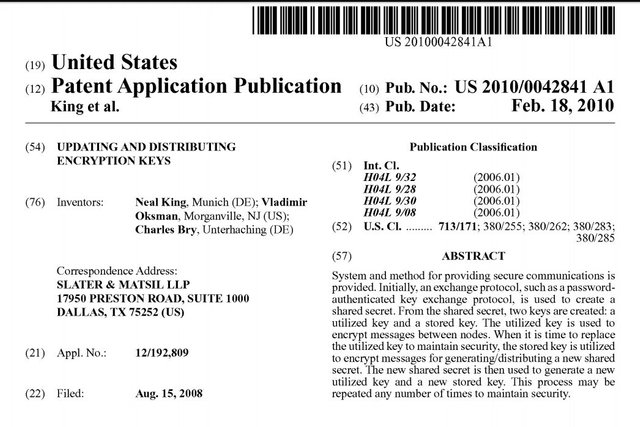
As a follower of @followforupvotes this post has been randomly selected and upvoted! Enjoy your upvote and have a great day!
Downvoting a post can decrease pending rewards and make it less visible. Common reasons:
Submit
The problem with not reading comments is that they might be important.
from MAPX
Downvoting a post can decrease pending rewards and make it less visible. Common reasons:
Submit